Sweden leads the way toward a sustainable future in fashion
The industry is at a major turning point
At A Glance
- In a circular economy, garment producers prioritize resource efficiency and find innovative ways to maximize the value of products, residues, dead-stock, or textile waste.
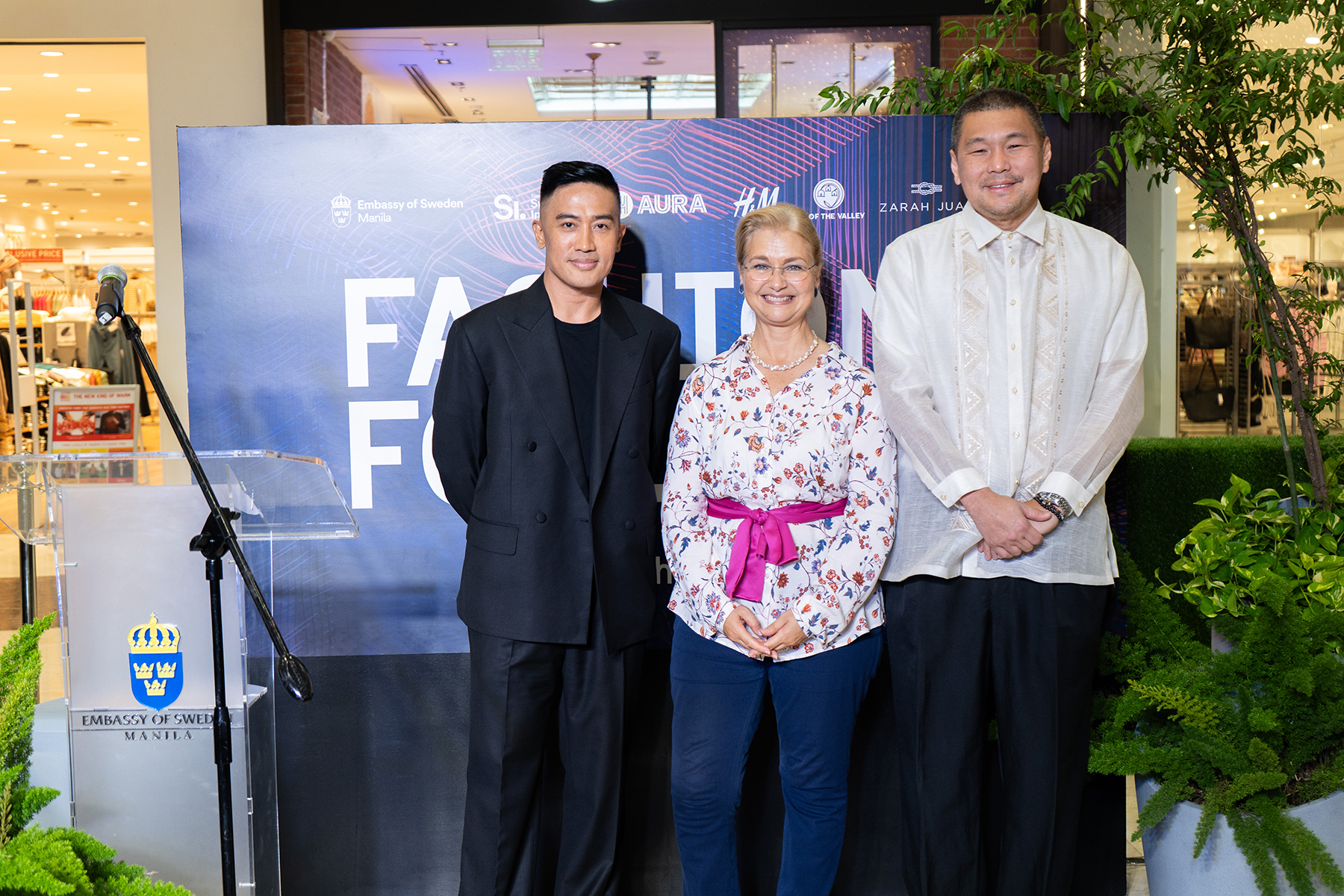
The global fashion industry is at a major turning point, with sustainability at the forefront of innovation. Sweden, a country known for its commitment to responsible development, is setting an example to the world in reshaping one of the most polluting industries in the world. The Fashion Forever exhibit, which ran for a week until Sept. 14 at SM Aura, showcased Sweden’s pioneering efforts in sustainable textiles and fashion.
Notorious for its excessive use of water, energy, and chemicals, the fashion industry is overdue for a transformation. Fashion Forever offered a glimpse into Sweden’s evolving garment industry and its fresh approaches to design, production, and distribution.
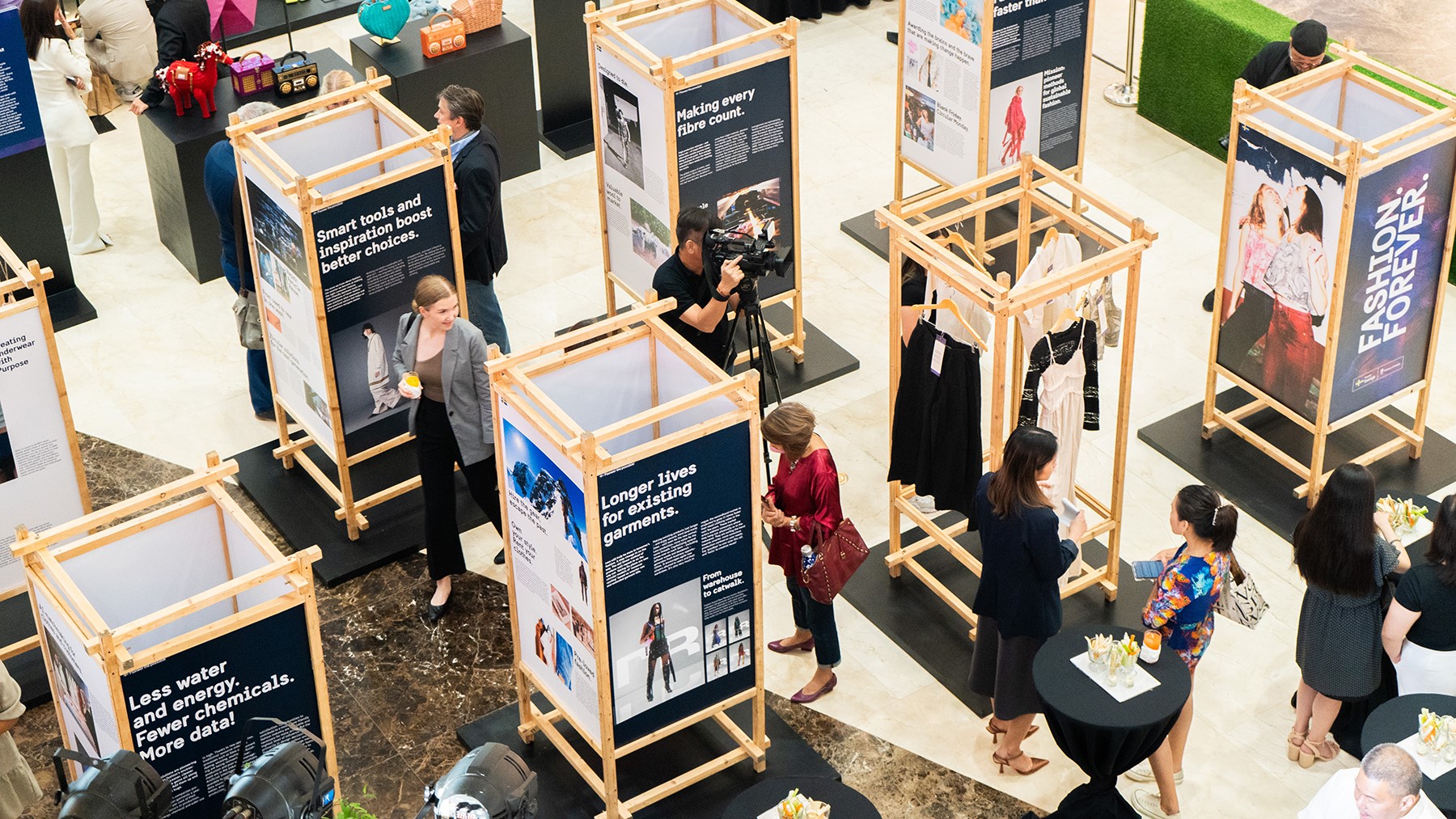
Sweden has made responsible development a cornerstone of its agenda, with active participation from the government, academia, and private enterprises. One standout initiative featured at the exhibit was Textile & Fashion 2030, led by the University of Borås in collaboration with the Swedish School of Textiles, SmartTextiles, Science Park Borås, and Research Institute of Sweden. This government-supported endeavor explores sustainable fashion techniques in small-scale settings and charts a path for brands to adopt these practices globally.
“Through the integrated work of fashion retailers, design schools, and science parks in Sweden, supported by the Swedish government, the fashion industry can continue to be creative, exciting, and lucrative, all while being kinder to the planet and better for the consumer,” says Swedish Ambassador Annika Thunborg. Sustainable fashion aligns with Sweden’s commitment to global sustainable development goals, including the Paris Agreement on climate change.
The power of circularity
Circularity took center stage at Fashion Forever. In a circular economy, garment producers prioritize resource efficiency and find innovative ways to maximize the value of products, residues, dead-stock, or textile waste. The exhibit placed the spotlight on advancements in circularity led by Siptex and Renewcell.
Siptex, a facility that sorts textiles by color and fiber composition using near-infrared light, efficiently handles large textile flows for continuous recycling. Renewcell, meanwhile, is a textile-to-textile recycling company. It creates Circulose from 100 percent textile waste with high cellulose content. This innovative material is then used to craft various fabrics and high-quality textile products.
Swedish fashion retailer H&M, which also had its own section at the exhibit, aims to achieve 100 percent circularity by 2030. Its Innovation Stories initiative showcased forward-thinking ideas, sustainable fabrics, and designs. Collections like “Science Story,” “Color,” “Co-Exist,” “Circular Design,” “Cherish Waste,” and “Re-enchantment Story” demonstrate H&M’s dedication to sustainability and innovation.
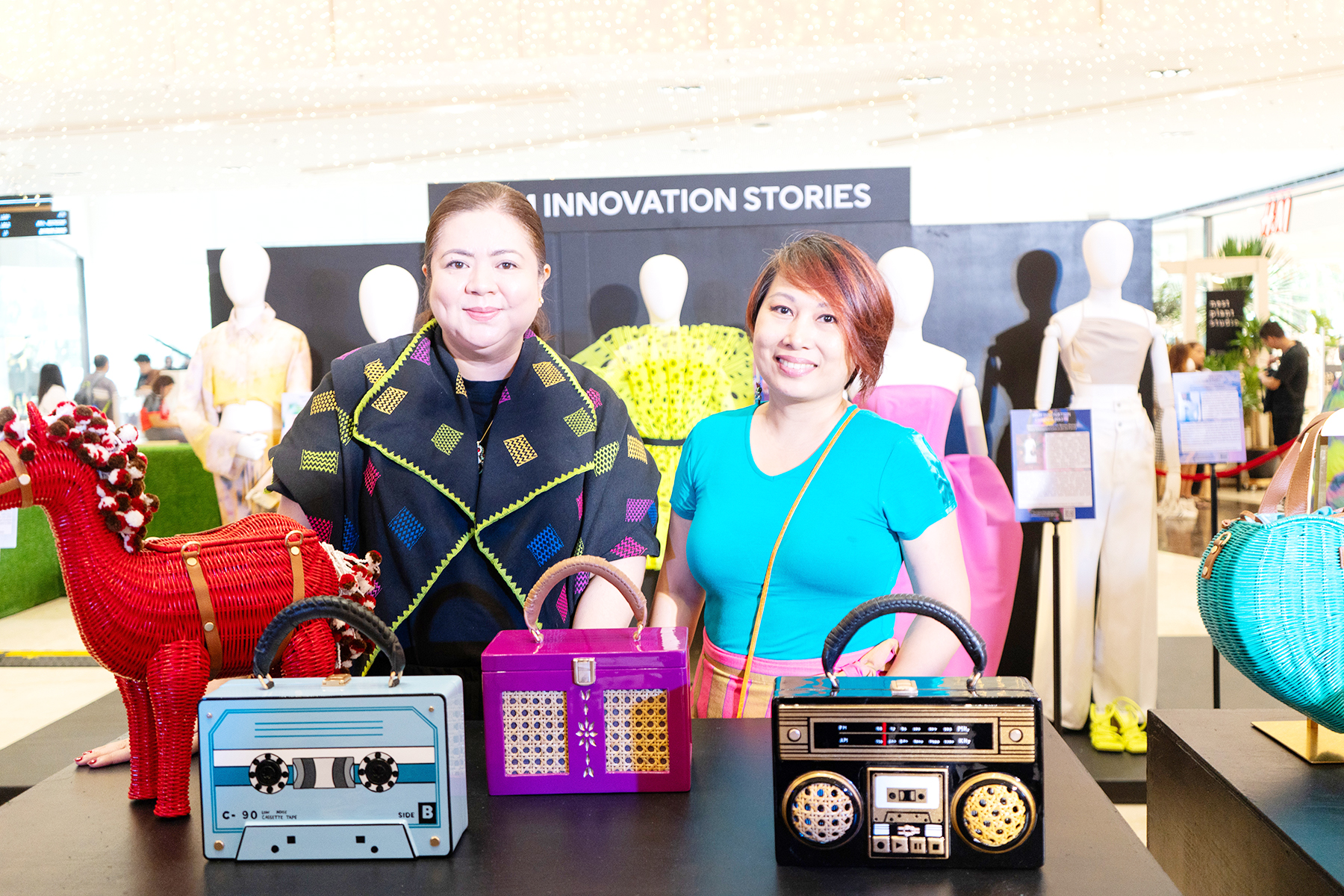
Local heroes
The exhibit also emphasized that circular fashion can start at home. Filipino brands like Zarah Juan and Lily of the Valley embrace local weaves, artisanal skills, and made-to-order processes to minimize fashion waste and create enduring garments.
Zarah Juan is known for its unique and colorful Filipino designs, sourcing materials ethically and locally while supporting community-based, small-scale production.
Lily of the Valley offers 100 percent made-to-measure innerwear products to reduce overproduction and wastage. It also pioneers a take-back program for old and unusable underwear.
In a world where fashion meets responsibility, Sweden hopes to help illuminate the way forward, proving that fashion can be both creative and environmentally friendly. The Scandinavian country’s commitment to sustainable fashion production aligns with a global call for change. With innovative practices and collaborations, the fashion industry can evolve into a force for good, and Fashion Forever is a great example of how to showcase that brighter future.
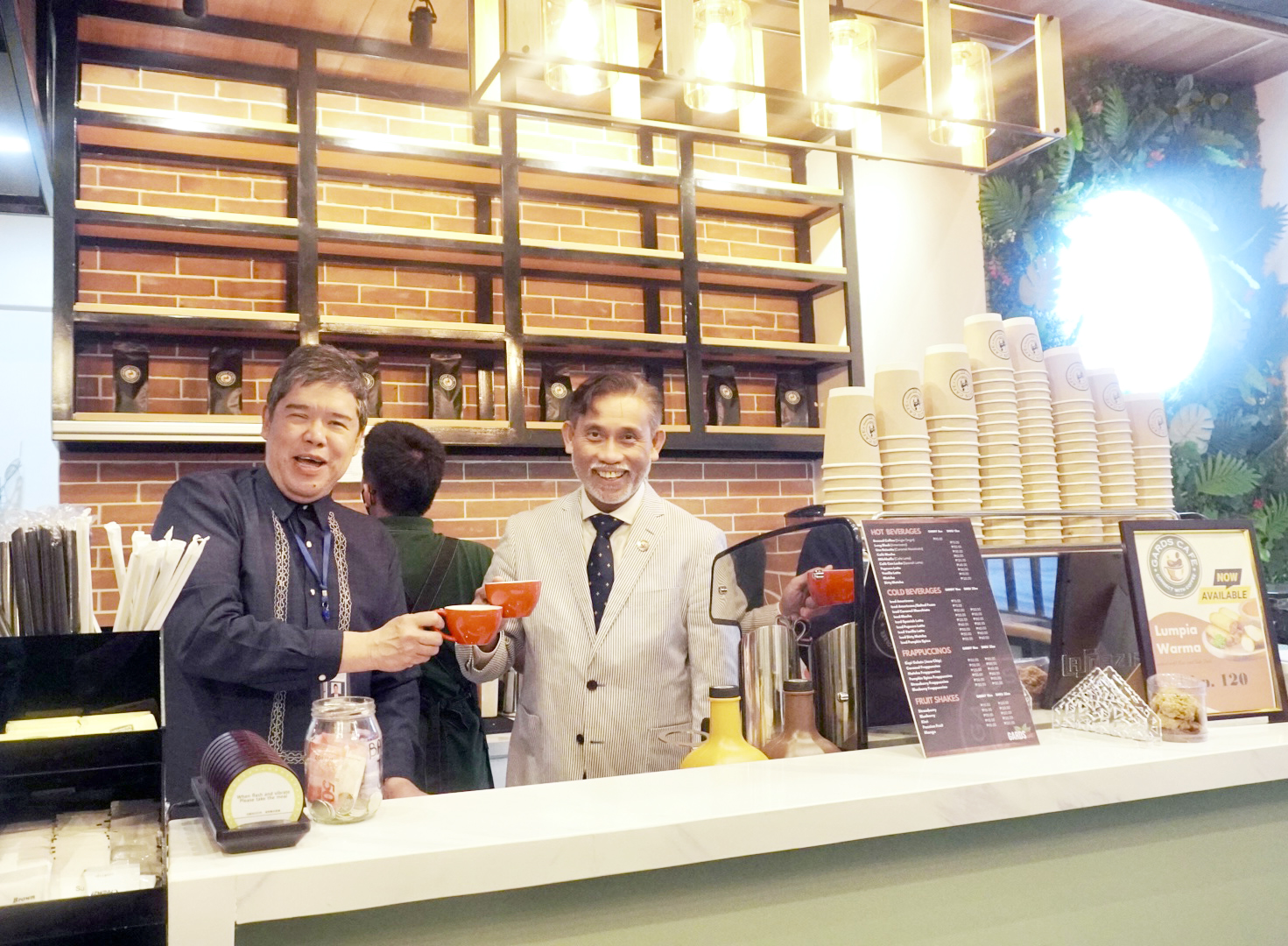
A Cup of Joe at the DFA’s main Consular Office
Appointments to renew one’s passport need not go uncaffeinated anymore. The Department of Foreign Affairs’ (DFA) Multi-Purpose Cooperative recently partnered with Gards Café to open an affordable yet cozy coffee joint within the premises of the Office of Consular Affairs (OCA) located along Macapagal Boulevard.
“I think we have to upgrade and upscale because we want the project to reflect government service in the highest standard. We do not wish to shortchange the people who come here,” said DFA assistant secretary Henry Bensurto. “I think people who come here for our service deserve the best we can give them in all aspects not only in the issuance of passports, but all facilities that make their stay here comfortable and convenient.”
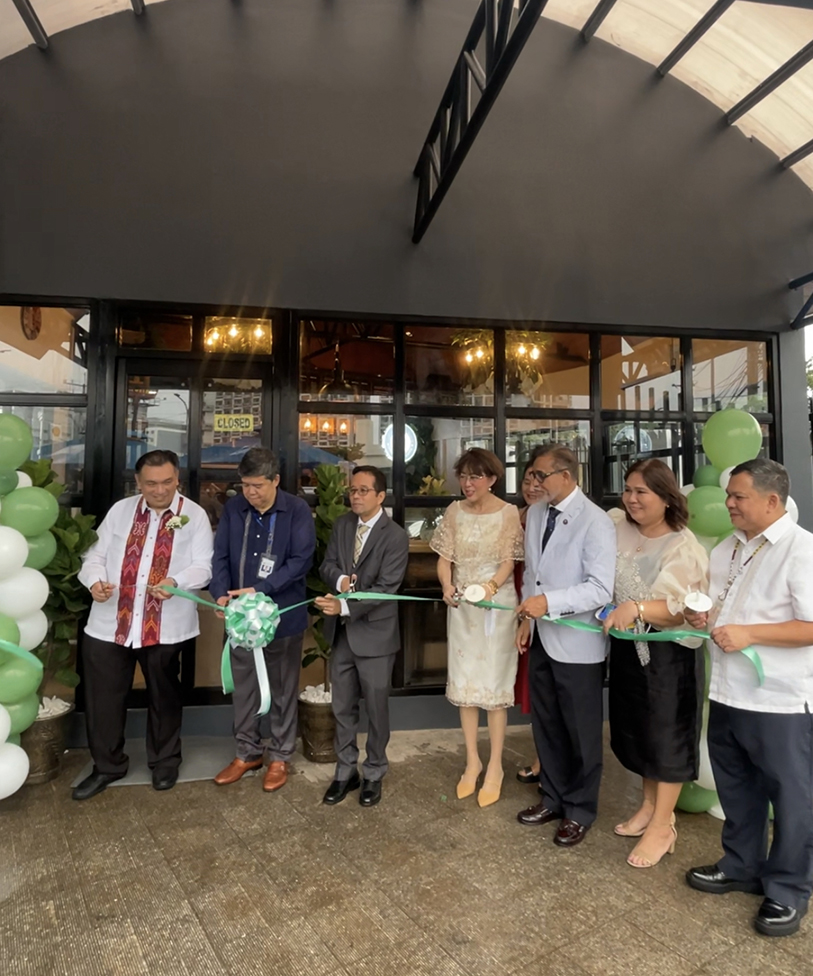
Bensurto added that they also made sure that the offerings at the café are affordable and that the coffee is made using Filipino beans. “We want it to be accessible for everyone,” he said.
Wide, busy roads that need to cater to vehicular traffic surround the consular office, making it a little uneasy to grab a bite if one starts to feel a little peckish. Having the café within the premises offers the option to avoid walking along the wide, busy boulevard, especially at the height of summer when the heat can be quite unbearable.
DFA undersecretary for administration Antonio Morales also lauded OCA for its “serbisyong may malasakit” and for relaunching the lactation room. “This displays how the office aims to make its premises inclusive, accessible, and gender-responsive for clients and personnel with specific needs.”